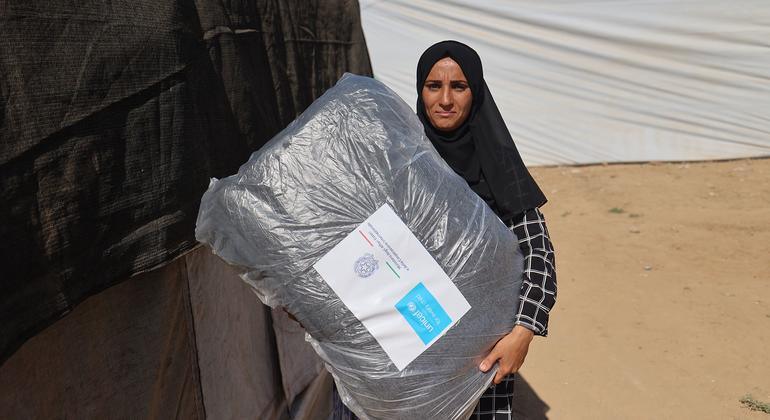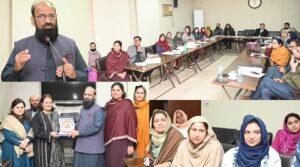Fuel is needed to power machinery for critical operations, including water, sanitation, hygiene, health and debris clearance.
Education, nutrition and protection efforts will also be possible thanks to the delivery of diesel, OCHA said, noting that three-quarters of the total amount went to the south and a quarter went to the north.
The latest UN data also indicates that since the beginning of the month, UN partners have provided food assistance to more than a quarter of a million people, distributing two food packages per household.
But a month after the ceasefire began, the UN World Food Program (WFP) said families in Gaza are struggling to rebuild their lives.
The north crossing is finally open
Israeli authorities announced the opening of the crucial Zikim crossing to allow humanitarian cargo to enter the shattered northern Gaza Strip.
“In recent weeks, we have been repairing the road leading to Zikim inside Gaza in preparation for this reopening and we are now carrying out final checks, including for possible explosive hazards,” UN spokesman Stéphane Dujarric told reporters in New York.
Zikim has been closed for two months and no supplies were entering Gaza directly from the north.
As humanitarian personnel continue to increase assistance and the commercial sector and donor countries further support the response, market prices for commodities are gradually stabilizing, Dujarric said.
America loses measles-free status as outbreaks rise
The Americas have lost their measles-free status after health authorities confirmed that the virus has been circulating in Canada for more than a year.
The region, the first in the world to eliminate measles twice, has seen a sharp rise in infections, with more than 12,000 cases confirmed in ten countries so far this year, mainly in Canada, Mexico and the United States. Twenty-eight people have died, including 23 in Mexico.
Canada’s outbreak began in late 2024 and has spread across the country, with persistent transmission in several provinces. Most infections have been reported among unvaccinated people and young children are most affected.
Resistance falling
Health experts warn that falling vaccination rates are leaving communities vulnerable.
Regional coverage for the second dose of measles vaccine is only 79 percent, well below the 95 percent needed to prevent outbreaks.
The regional office of the U.N. health agency, the Pan American Health Organization, said the setback was “reversible” if countries strengthen immunization campaigns and outbreak response.
Measles, one of the most contagious viruses on the planet, can cause serious complications such as pneumonia, brain inflammation, blindness and death.
Officials expressed confidence that, with renewed cooperation, the region can once again eliminate measles.
UN migration agency helps Brazil recover from tornado
A UN emergency team is on the ground in southern Brazil helping communities recover from a powerful tornado that ripped through the Rio Bonito do Iguaçu on November 7, killing seven people and injuring more than 800.
Winds of up to 250 km/h destroyed around 90 percent of the city’s urban area, destroying homes, schools and health facilities, and cutting off power and water supplies.
Hundreds of families were left without shelter, prompting the state government to declare an emergency.
Specialists deployed
The United Nations migration agency, IOM, has deployed 11 specialists to work with local and federal authorities to coordinate aid, provide temporary accommodation and ensure access to social support. The agency said its goal is to help families rebuild their lives with dignity while strengthening communities against future disasters.
IOM has also been supporting recovery efforts in nearby Rio Grande do Sul, where last year’s devastating floods displaced thousands of people.
He said both disasters highlight the growing threat of extreme weather linked to climate change and the urgent need for greater preparedness and resilience.
“As extreme weather events become more frequent, our mission is to ensure that no one is left behind,” said IOM Brazil head Paolo Caputo.




